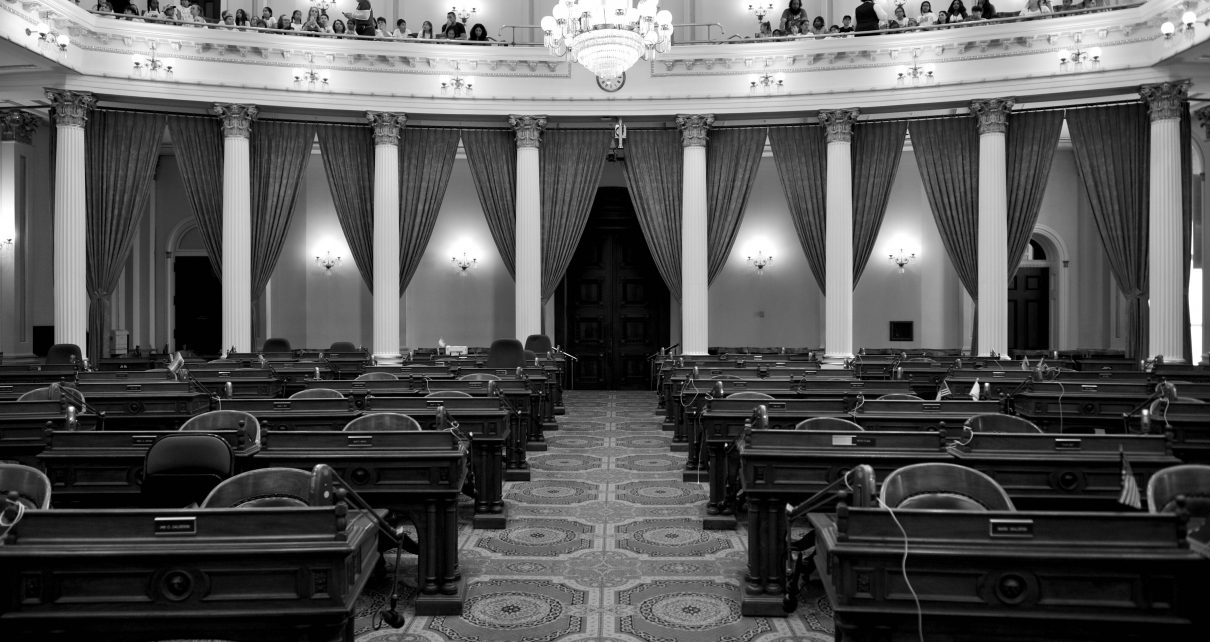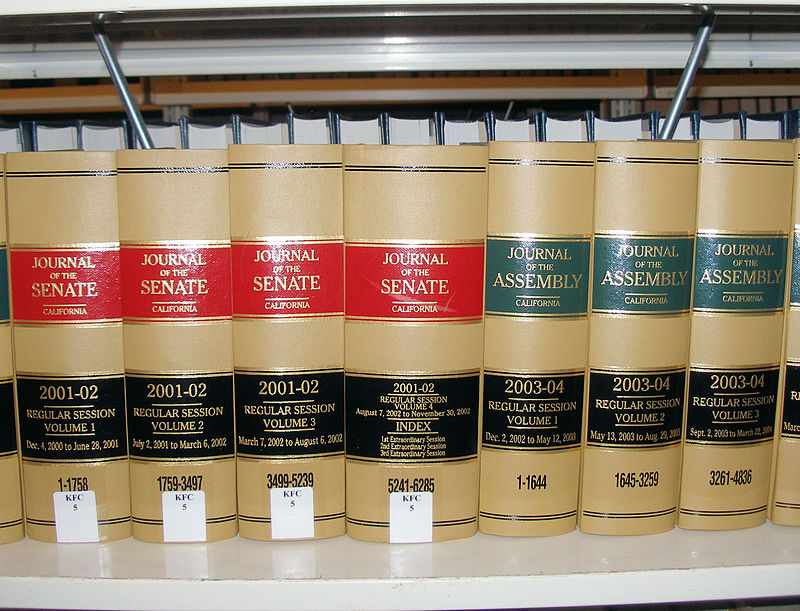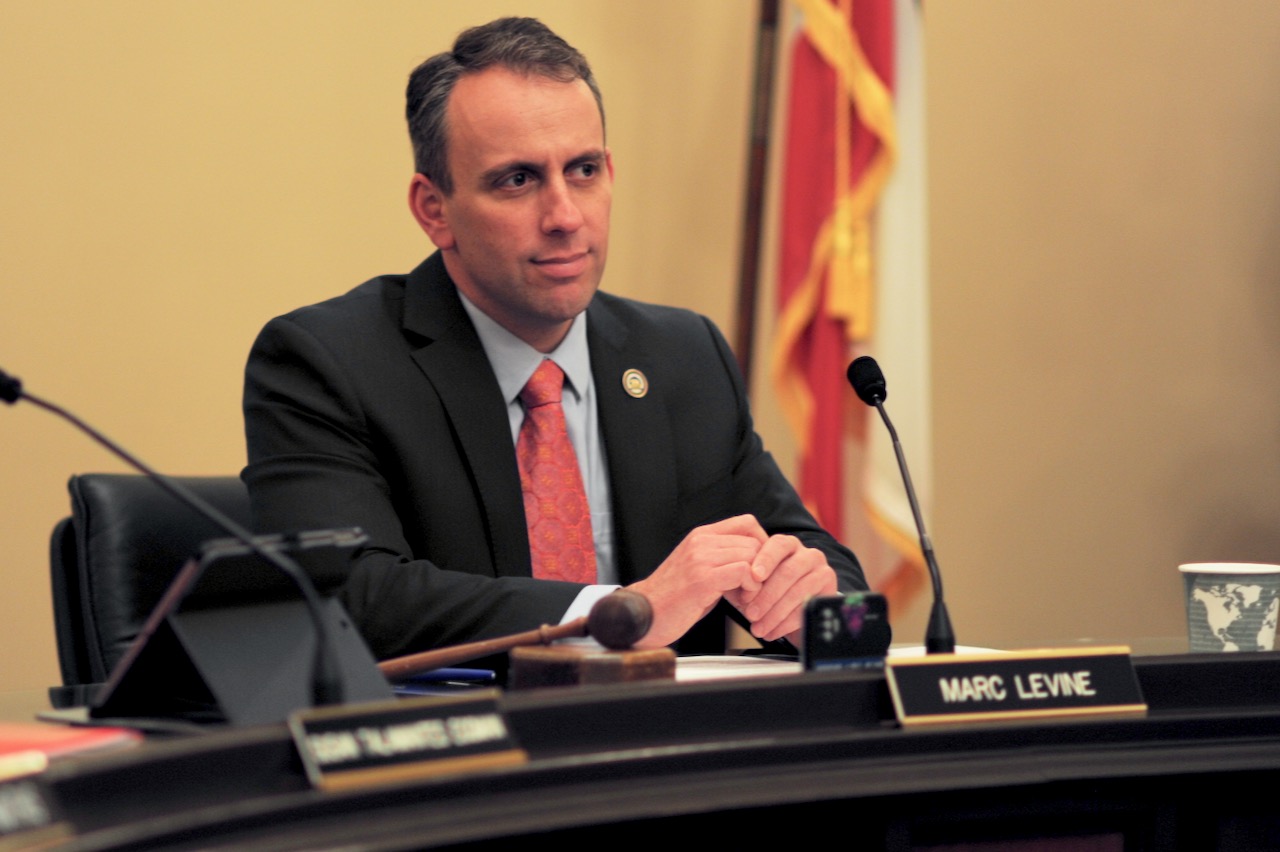
California Assembly Chambers. (Photo: Kevin Sanders for California Globe)
CA Assembly Proposes Proxy Voting
The Assembly Speaker must announce the names of Members voting by proxy that day
By Chris Micheli, July 28, 2020 11:28 am
The California State Assembly is poised to adopt a new rule to allow proxy voting. ACA 25, which passed the Assembly but has not been heard by the Senate, would have allowed proxy voting, along with remote participating and voting by Assembly Members. Introduced on July 27, the first day back from its extended recess, House Resolution 100 (Calderon) would adopt a rule to allow proxy voting during the COVID-19 state of emergency.
HR 100 first contains five “Whereas” clauses setting forth the need for the proposed rule change. The resolution notes that Governor Newsom proclaimed the state of emergency on March 4 as well as certain stay-at-home orders. It also notes that the pandemic has affected Members of the Legislature and their ability to participate in legislative proceedings. It also claims to “threaten to undermine the constitutional duty and authority of each house to convene and to compel the attendance of its Members.”
The resolution also notes that Article IV, Section 7 provides that each house may adopt rules for its proceedings, to define a quorum necessary to conduct business, and establish rules for compelling attendance of absent Members. HR 100 does not amend the existing Assembly Rules. Instead, it adopts a standalone “authorization,” but does begin, “Notwithstanding any other rule of the Assembly.”
This new rule that would be created by HR 100 authorizes the Assembly Speaker to permit proxy voting by designated Members for floor session (but not committee hearings) during the COVID-19 state of emergency. Eligible Members of the Assembly must request authorization from the Speaker and to be “eligible” the Member “shall be at a higher risk from the COVID-19 virus.” The proxy authorization will be terminated when the 2020 Session adjourned November 30, or the state of emergency ends earlier, or the Speaker withdraws the authorization earlier.
In order for an Assembly Member to request authorization to proxy vote, he or she must submit a letter requesting it prior to the floor session at which the voting would occur. If the Speaker approves the request, then that authorization is provided to the Chief Clerk and printed in the Assembly Daily Journal. The Chief Clerk must post the list of any Members voting by proxy on the Assembly website prior to any Floor session at which proxy voting will occur.
Once a Floor session begins, but before proceeding with business contained in the Assembly Daily File, the presiding officer (usually the Assembly Speaker pro tempore) must announce the names of Members who are voting by proxy that day. The Member voting by proxy must submit written voting instructions prior to the Floor session and the instructions must identify each legislative action on which that absent Member will be voting by proxy.
Those written instructions must be submitted to the Chief Clerk. A Member voting by proxy can only change those instructions with another written instruction prior to the presiding officer opening the roll on a legislative action. The proxy votes, along with a brief written explanation by the absent Member if desired, will be identified for each roll call vote in the Assembly Daily Journal. A Member voting by proxy cannot add on or change his or her vote after the proxy vote is cast.
There are four legislative leaders who are authorized to actually cast the proxy votes of the absent Assembly Members: The Speaker (Anthony Rendon), Majority Leader (Ian Calderon), Republican Leader (Marie Waldron), and Republican Floor Manager (Heath Flora). The rule specifically authorizes those four Members to operate electronic voting switches of the absent Members.
As a single house resolution, HR 100 only needs to be adopted by a majority vote of the Assembly (neither the Senate nor the Governor has a role in HR 100).
- Liability for a Deceased Spouse’s Debt - March 4, 2026
- Wildlife Management Areas - March 3, 2026
- County Revenues for Fish and Game - March 3, 2026




